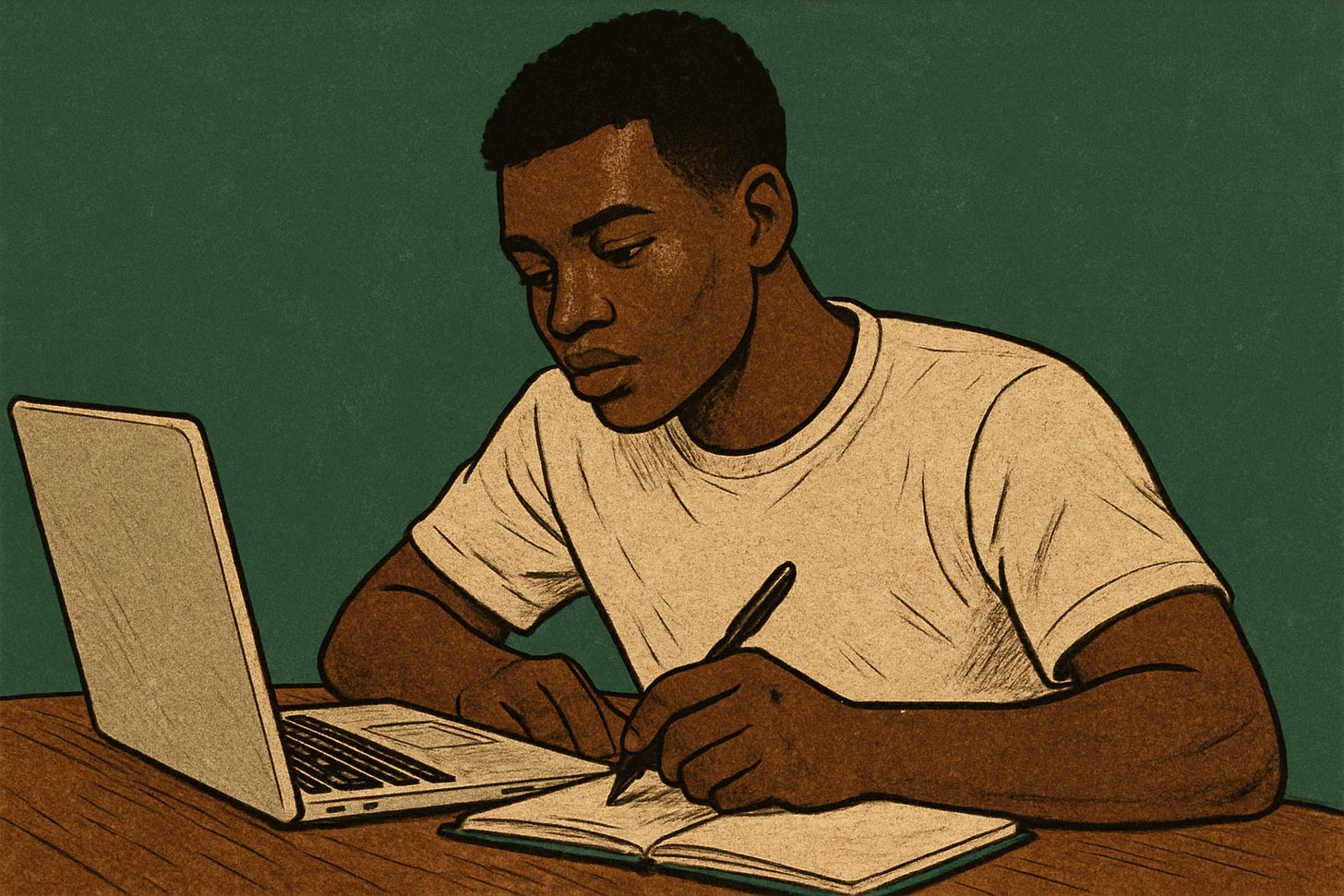Right now, I’m doing the thing.
There is no perfect time. There is only this time.
For most of my twenties, I became something of an expert in planning. My notebooks were filled with mind maps, elaborate lists, and colour-coded strategies.
At one point, I had an entire whiteboard in my bedroom covered with arrows, goals, and boxes. If a stranger had walked in, they might have mistaken me for a military strategist preparing for an ambitious campaign. And yet, despite all that planning, most of my “great projects” never saw the light of day.
I remember one summer when I announced, quite dramatically, that I was going to write a novel. I researched the best writing software, purchased a fountain pen for “serious thinking”, and read blog after blog about daily word counts.
For two months, I worked tirelessly to prepare myself to become a novelist. The only thing I didn’t do was write the novel. By September, my motivation had waned, and the project was quietly shelved.
That cycle repeated itself so many times that I began to suspect I was in love not with doing, but with preparing to do. It felt safer, more polished.
As long as I was preparing, there was no chance of failure, no evidence of mediocrity. My plans, in their untested perfection, looked far better than anything I could actually create.
But there was also a cost. The longer I stayed in the safety of preparation, the further I drifted from the raw electricity of doing. The more I talked about the “thing”, the less I actually touched it.
I think of this whenever I return to a line from Steven Pressfield’s The War of Art: “The most important thing about art is to work. Nothing else matters except sitting down every day and trying.”
Pressfield doesn’t praise the vision board, the ergonomic chair, or the scented candle. He praises the act itself, the moment you put words on a page, paint on a canvas, or movement in your body.
There’s a strange kind of freedom that emerges when we actually start. I felt it once while jogging. I had spent the entire morning procrastinating, scrolling through apps, finding excuses about the weather and my tired legs. But when I finally laced my shoes and stepped outside, the resistance evaporated.
I was jogging, not perfectly, not quickly, but moving nonetheless. And the joy was in that simple, unglamorous truth: I was doing the thing.
Psychologists refer to this as the “activation energy” of a habit.
James Clear in Atomic Habits writes that success often depends not on intensity but on consistency, showing up, however imperfectly, right now. Each small act compounds into momentum, and momentum has a way of silencing self-doubt.
The trouble is, many of us live in what I call the “if only” trap:
If only I had more time, I’d start my business.
If only I felt inspired, I’d pick up the brush.
If only the stars aligned, I’d finally leap.
The logic seems harmless, even reasonable. But, as the writer Annie Dillard reminds us in The Writing Life: “How we spend our days is, of course, how we spend our lives.”
Waiting for the perfect time is a quiet way of giving life away.
So here’s my counter-logic: There is no perfect time. There is only this time.
Not next week, not next year, not when the planets are better arranged, this very moment.
When I write, I sometimes imagine Blaise Pascal’s famous warning: “All of humanity’s problems stem from man’s inability to sit quietly in a room alone.” Doing the thing doesn’t require cosmic alignment. It requires me, right here, right now, to show up in a messy, awkward, deeply human way.
And yes, the results may be underwhelming. The jog may be slow, the sketch may be amateur, the words may sound clumsy. But that hardly matters. Because while plans belong to tomorrow, action belongs to today.
So here I am, tapping these words on a keyboard that isn’t particularly ergonomic, in a room that could use better lighting, without an obvious mind. And yet, a small miracle is unfolding. I am writing. Not planning to write, not fantasising about writing, not optimising my conditions to one day write.
I am doing the thing. And in this imperfect moment, that is enough.
Thank you for reading. Your time and attention mean everything. This essay is free, but you can always buy me coffee or visit my shop to support my work. For more thoughts and short notes, please find me on Instagram.



